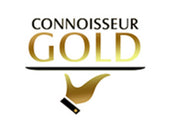Edible Gold Leaf Across the World - Hungary
- by sam@wrightsoflymm.co.uk User
Introduction: A Touch of Gold Through Time
Hungary, a country known for its rich culinary heritage and artisanal craftsmanship, has a long-standing relationship with edible gold leaf and silver leaf. From royal courts to modern patisseries, the use of goldleaf, gold flakes, gold dust, and even silver flakes and dust has adorned Hungarian food and festivities for centuries. Whether it's 24 carat luxury or 23 carat tradition, the shimmer of precious metal continues to captivate the Hungarian palate.
Historical Roots of Gold Leaf in Hungary
The tradition of using gold leaf in Hungary dates back to the Renaissance and Baroque periods, when it was closely associated with the nobility and the Catholic Church. Hungarian royalty, influenced by Western European courts, used edible goldleaf as a sign of divine favor and opulence. Banquets often featured gilded sweets and liqueurs, a practice inspired by Italian and Austrian traditions.
Goldleaf, or "aranylevél" in Hungarian, was not merely decorative—it symbolized wealth, purity, and even healing properties, based on the ancient belief in alchemical gold’s therapeutic benefits.
Traditional Terms for Gold and Silver Leaf in Hungary
In Hungary, several terms have been used historically and today for edible precious metals:
-
Aranylevél – Gold leaf
-
Ezüstlevél – Silver leaf
-
Aranypelyhek – Gold flakes
-
Ezüstpelyhek – Silver flakes
-
Aranyporként – Gold dust
-
Ezüstporként – Silver dust
These terms are still widely used by Hungarian chefs, confectioners, and artisans, especially in high-end culinary settings or cultural events.
Culinary Uses of Goldleaf and Silver Leaf in Hungary
Today, edible gold leaf and silver leaf are making a comeback in Hungary's gourmet scene. You’ll find them in:
1. Luxury Desserts
Fine pastries, chocolate truffles, and cakes are topped with delicate sheets of 24 carat gold leaf or 23 carat goldleaf, creating a luxurious finish for weddings and formal events.
2. Liquors and Spirits
Hungary is home to a variety of herbal liqueurs and pálinka (fruit brandy), some of which are infused with gold flakes or silver flakes, adding visual flair and perceived value.
3. Festive Breads and Sweets
In high-end bakeries, traditional Hungarian bejgli or kalács may feature dustings of gold dust or silver dust, especially during national holidays or religious celebrations.
24 Carat vs. 23 Carat Gold Leaf: What’s the Difference?
When choosing between 24 carat and 23 carat goldleaf, Hungarian chefs consider both aesthetics and cost.
-
24 carat gold leaf is pure and more vibrant, offering maximum brilliance and is chemically inert—perfect for edible use.
-
23 carat goldleaf, slightly less pure, is more pliable and often used for decorating chocolates and baked goods due to its balance between luxury and practicality.
Artisanal and Cultural Significance
Beyond the kitchen, Hungary’s long-standing guild traditions also incorporate gold leaf in bookbinding, iconography, and ornamental crafts. Artisans and restorers often use gold dust and silver dust in the restoration of churches and heritage buildings.
Interestingly, the edible versions of these products have seen a resurgence as part of Hungary’s focus on cultural tourism. Culinary tours often include tastings of golden pastries or drinks containing floating gold flakes.
Modern Trends and Global Influence
With the rise of social media, Hungarian chefs and influencers are increasingly showcasing gilded dishes. The visual appeal of goldleaf-topped macarons, chocolates, or cocktails makes them highly "Instagrammable" and desirable to luxury-seeking foodies.
Global luxury trends are also influencing local producers, who now offer Hungarian-crafted gold dust, silver leaf, and gold flakes for export and online sales.
Final Thoughts
Hungary’s connection to edible gold leaf is both historical and evolving. Whether used in noble feasts of the past or modern gourmet desserts, the shimmer of 23 carat or 24 carat goldleaf, silver leaf, gold dust, or gold flakes continues to add a magical touch to Hungarian culture and cuisine.






